The Canadian Centre for Safer Communities (CCFSC) is a not-for-profit organization guided by a board of directors and staff. Working virtually across Canada, our team brings together professionals from a wide range of backgrounds who are united by our shared goal of fostering community safety and well-being.
Team
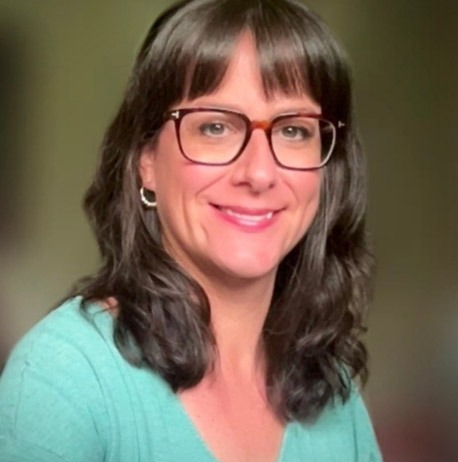
Melanie Bania – Director of Services, Evaluation, and Impact (she/her/elle)
Melanie joined CCFSC in 2023 and supports the development of Community Safety & Well-Being plans across Canada, as well as the monitoring and evaluation of plans and programs. Melanie was part of the team at the Institute for the Prevention of Crime that launched the CMNCP in 2006. She is thrilled to be back as part of the team! Melanie holds a PhD in Criminology and her areas of expertise include collaborative governance, community-based crime prevention, youth violence prevention, youth justice, program evaluation and performance measurement. Melanie has a unique blend of front-line, senior management, and academic experiences, allowing her to see issues and solutions from various angles. Melanie’s approach relies on genuine engagement, authentic relationship-building, and focuses on continuous learning. She grew up in rural Northern Ontario, is fluently bilingual in English and French and is committed to working from community-centered and anti-oppressive lenses.
Melanie resides on the traditional unceded territory of the Algonquin Anishnaabeg People, colonially known as Ottawa, Ontario.

Amanda-Rose Bourget – Knowledge Exchange Coordinator
Amanda-Rose joined the Canadian Centre for Safer Communities in July 2024. As the lead for knowledge exchange, she plays a crucial role in co-curating and coordinating resources and events for both members and the public. Her responsibilities include planning and facilitating member meetings, speaker series, and community of practice sessions, as well as sharing evidence-informed resources and models to support community safety and wellbeing projects.
Her academic credentials include a BA from Brandon University with double majors in Psychology and Sociology, and she is currently completing her Master of Marriage and Family Therapy at the University of Winnipeg. Amanda-Rose also obtained her Higher Education Teaching Certificate through the University of Winnipeg’s Faculty of Graduate Studies and holds a micro-credential in Facilitating Older Adult Learning from the University of Manitoba’s Extended Education program. Her professional experience spans public service and sectors such as housing, addictions, mental health, gender-based violence, suicide prevention, and education. She has a passion for service and community having volunteered with a variety of organizations in many capacities. She believes community safety and wellbeing are both personal and collective responsibilities, founded on accountability, strong relationships, and a shared commitment to mutually beneficial change.
With a heart of Reconciliation, Amanda-Rose is dedicated to repairing relational harms through allyship, re-learning our nation’s history, self-awareness, accountability and growth. Amanda-Rose resides in a now predominant agricultural area on Treaty 1 territory, the shared traditional lands of the Dakota Oyate, the Anishinaabeg and the homeland of the Red River Métis Nation where today the Ininew, Anisininewuk, Denesuline, and Inuit call home.
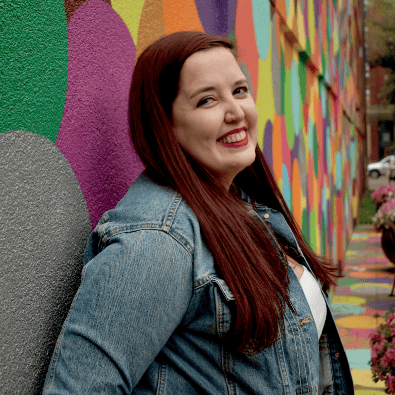
Jade Brazil – Manager of Operations (she/her/elle)
Jade joined CCFSC in 2023. She is a multitasking maven and administrative assistant extraordinaire. With a colourful career journey that includes mastering customer service, orchestrating funding coordination for three fruitful years, and working as a virtual assistant for small businesses, she has become a maestro of all things administrative. Her academic toolkit boasts a Bachelor of Arts in history, accompanied by a minor in sociology. These studies have not only deepened her knowledge but have also equipped her with a distinct ability to approach tasks with both precision and a broader societal lens.
She is on a quest to live with a decolonized heart and mind and is dedicated to infusing an intersectional and inclusive perspective into every facet of her work. It’s not just about tasks; it’s about crafting an environment that embraces diversity and fosters growth.
Jade resides on Treaty 6 Territory – ᒥᐢᑿᒌᐚᐢᑲᐦᐃᑲᐣ, amiskwacîwâskahikan – the traditional meeting ground, gathering place, and travelling route of the nêhiyawak (Cree), Anishinaabe (Saulteaux), Niitsitapi (Blackfoot), Métis, Dene, and Nakota Sioux.

Emma Cash – Project Manager (she/her/elle)
Emma joined the Canadian Centre for Safer Communities in 2024 and supports the development of Community Safety and Well-Being plans with a particular focus on Manitoba. After studying at the University of Winnipeg, Emma received a Bachelor of Arts Honours degree in sociology, having specifically focused on the prison industrial complex and the social concepts of crime and deviance. Having spent years working at the provincial and federal levels of government and through her work within the music industry, Emma has had the opportunity to live and work in Canada, England, and the United States and has come to understand that there is a global need for innovative approaches to community safety and crime prevention that are tailored to local environments. She is passionate about improving the safety of communities through a non-carceral and community-led approach, and creating service delivery models and programs that utilize upstream thinking to address crime prevention as opposed to relying solely on punishment and police enforcement. Emma approaches all her work collaboratively and with empathy and is able to foster relationships within diverse communities, highly valuing people’s lived experiences when it comes to compiling the research that informs policy and programming.
Emma resides within the Homeland of the Red River Métis, on Treaty 1 Territory, the ancestral lands of the Anishinaabeg, Anishininewuk, Dakota Oyate, Denesuline and Nehethowuk Nations.
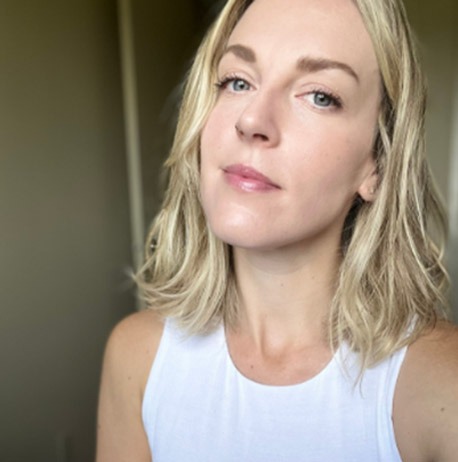
Stacey Colliver – Director of Research and Services (she/her/elle)
Stacey joined CCFSC in 2023 and supports the development of CSWB plans across Canada. With a master’s degree in Criminology & Criminal Justice Policy, she understands the importance of fostering upstream approaches to prevent and reduce crime in communities. She is currently pursuing her PhD at the University of Waterloo in the Sociology & Legal Studies department focusing on the regulation of online space and has worked in various fields including non-profit leadership and restorative justice (Community Justice Initiatives), online crime and safety (Kik Interactive Inc.) and has taught courses at the University of Guelph, University of Waterloo, and Wilfrid Laurier University. Stacey is passionate about igniting the untapped assets of communities that are often ignored in favour of formal structures and responses to crime and harm.
Stacey resides on the traditional unceded territory of the Mississauga, Anishinaabew, and Attiwonderonk (Neutral) peoples, colonially known as Mitchell, Ontario.
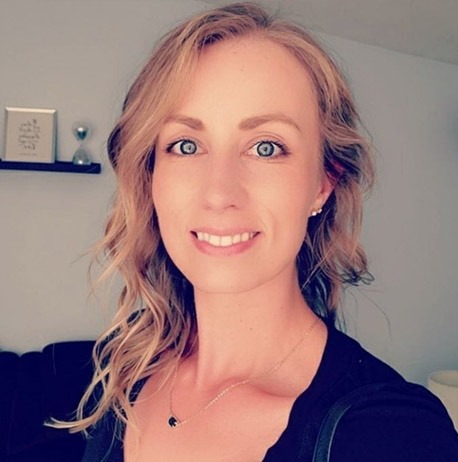
Katie Cook – Director of Operations and Services (she/her/elle)
Katie joined CCFSC in 2020. Her work involves managing a range of projects, including the development of community safety and well-being plans, creating documents to support communities in their own work (i.e., the Practitioner Guide for the Development of CP/CSWB Plans and topic summaries), and conducting research. She is a criminologist with experience in youth justice and community crime prevention. She completed her PhD in sociology at the University of Waterloo where her research focused on youth crime prevention and campus law enforcement. She has worked with the Waterloo Region Crime Prevention Council on projects to support marginalized youth, reduce problematic substance use, and prevent violence, and was a member of the Youth Justice Committee with the John Howard Society of Waterloo Wellington for several years. Her work is guided by the principles of equity, collaboration, and long-term investment in the social determinants of health to ensure all members of the community can thrive.
Katie resides in Kitchener, Ontario, which is the traditional territory of the Haudenosaunee, Anishinaabe, and Neutral peoples.
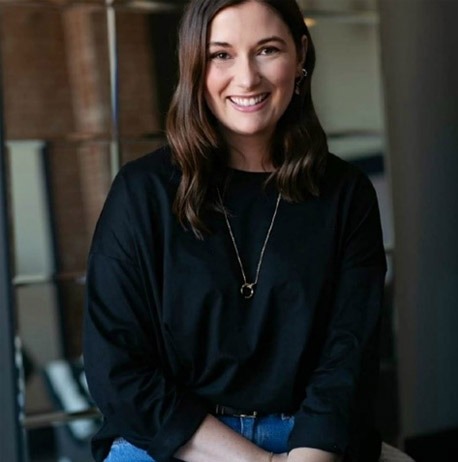
Audrey Monette – Director of Engagement and Services (she/her/elle)
Audrey joined CCFSC in 2016. She leads diverse projects related to community safety and well-being (CSWB), including facilitating training sessions, conducting research, and developing CSWB plans. With a master’s degree in critical criminology, she advocates for non-carceral approaches to ending gender-based violence, preventing victimization, and improving victims’ and prisoners’ rights. Audrey is passionate about community-led approaches to safety and well-being that are rooted in equity, social justice, and dismantling systems of oppression.
Audrey resides on the traditional unceded territory of the Algonquin Anishnaabeg People, colonially known as Gatineau, Québec.
![]()
Hayley Moody – Researcher (She/Her)
Hayley joined the Canadian Centre for Safer Communities in 2024 and supports research on Community Safety and Well-Being (CSWB) plans across Canada. Their professional journey reflects a balance of frontline support work with survivors of violence, individuals experiencing addiction, and 2SLGBTQ+ youth, alongside roles advocating for systemic change. She holds an MA in Social Justice & Community Engagement and has been involved in numerous academic and community-based research projects centering community-led responses to safety and wellbeing.
Hayley resides on the traditional and treaty territory of the Anishinabek Nation, specifically the Chippewas of Saugeen and Chippewas of Nawash, colonially known as Owen Sound, Ontario.

Jazlyn O’Bonsawin – Project Coordinator (she/her/elle)
Jazlyn is a master’s student in the Community Psychology program at Wilfrid Laurier University. As an Abenaki woman, Jazlyn has experience doing research with Indigenous communities in a way that ensures reciprocity Indigenous people and communities. She joined the Canadian Centre for Safer Communities (CCFSC) in June of 2023 and has been working on the community and urban safety monitoring project, specifically working on identifying indicators of safety that are relevant to Indigenous people and communities. Jazlyn uses a culturally sensitive community-based approach that ensures that Indigenous voices are heard and represented in the community and urban safety monitor.
Jazlyn currently resides in Waterloo, which is located on the unceded territory of the Chonnonton (Neutral), Anishinaabeg, and Haudenosaunee peoples. This land has been cared for and stewarded by these Indigenous communities for generations. Indigenous communities have an enduring presence and have made vast contributions to the region.
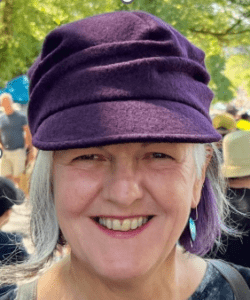
Christiane Sadeler – (she/her/elle)
Christiane lives with her family on Vancouver Island on the traditional and unceded territories of the Lekwungen speaking and W̱SÁNEĆ peoples, where she has her own consulting business. Christiane was the executive director of a regional crime prevention council for over 25 years. During her tenure with the council, Christiane had the privilege of co-chairing the former Canadian Municipal Network on Crime Prevention, now the Canadian Centre for Safer Communities. She brings to all her work a healthy skepticism about the status quo coupled with a strong optimism about the power of community. She has sustained this optimism after many years of work in mental health, violence and sexual abuse prevention, addictions, child welfare, housing and homelessness, neighbourhood development, research, and facilitating collaborations that advance equity and rock the boat. In her “me time” she is usually found somewhere in nature hiking and camping with her partner of many years and her golden doodle Zoe. Christiane is thrilled to have been asked to be part of the CCFSC work for the next year and to help advance prevention in municipalities.
Board of Directors
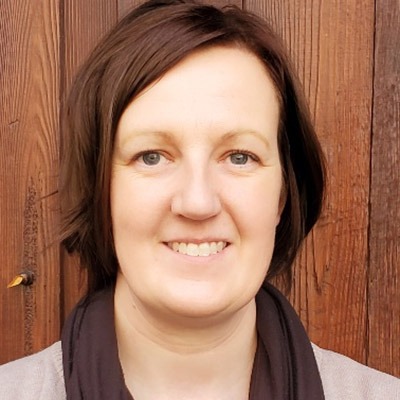
(she/her/elle)
As Social Development Manager for the City of Kelowna, Colleen leads a dynamic team of dedicated community safety practitioners striving to enhance community well-being and safety for all through leadership, education, engagement and collaboration. Throughout her career, Colleen has worked closely with enforcement partners, social agencies, businesses and citizens to invest in Kelowna’s community to make the city an even safer place to live, work and enjoy. Colleen graduated from Okanagan University College with a Bachelor of Arts (honours) and has been employed in community safety roles for over 20 years.
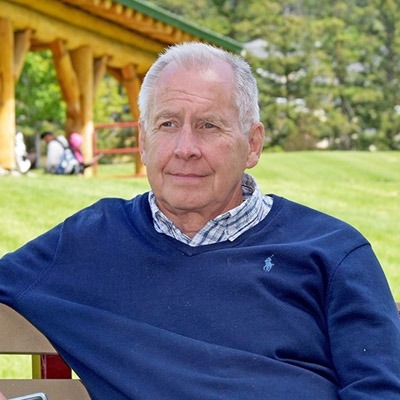
(he/him/il)
Dave recently retired from his position as the Manager of Community Safety for the City of Williams Lake, where he was responsible for multiple community safety programs and the management of the RCMP based victim services team. He has worked as a regular member of the Royal Canadian Mounted Police stationed in several communities throughout British Columbia, and as a Road Safety Manager for the Insurance Corporation of British Columbia. Both were lengthy careers which were community-based and all about building positive relationships that forged very strong partnerships around community safety.
Dave continues to be involved in Emergency Support Services for the City of Williams Lake and Cariboo Regional District. He has worked in depth with Indigenous communities in all aspects of his career. Dave is an avid road bike cyclist, kayaker, and hiker. Williams Lake is his permanent home and he is blessed with 3 children and 9 grandchildren that are all healthy and happy.
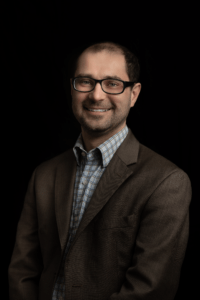
Paul Lang (he/him/il)
Paul is the CEO of the Kent Regional Service Commission since January 2013. Paul loves working for the Kent Region as one of the most rural regions in the province. He understands the importance of collaboration and is constantly working with various stakeholders and partners to improve the quality of life of the people of Kent.
Paul holds a bachelor’s degree in social sciences, majoring in Political Science with a minor in Economics from the Université de Moncton; he has a master’s degree in Regional Development from the Université du Québec à Rimouski. He also holds the NACLAA Certificate, the Ec.D accreditation and is the only local government administrator outside the province of Quebec to hold the “Directeur municipal agréer” designation. He was fortunate to be chosen as one of the 15 Acadian leaders that will influence change in New Brunswick in the future: he’s an alumnus of the New Brunswick 21 Inc. leadership program and the National Leadership Program of Action Canada.
He is married to Danielle Doucet, a research analyst at the New Brunswick Health Council and the father of Thomas, a 10-year-old boy who, just like his parents, enjoys life fully!

(she/her/elle)
Razmin Said leads the City of Brampton’s first Community Safety and Well-Being Office. As Manager, she has been responsible for directing the development of the Brampton Community Safety Action Plan 2022-2027, which is a strategic plan that establishes the vision, mission, and principles of the Community Safety & Well-Being Office along with three key areas of focus, twenty-five new tactics, and measurable targets to be achieved. Razmin is passionate about leading with empathy and is dedicated to growth and widening her perspective. Her upbringing in a collective culture drives her commitment to work with the community to build resiliency.
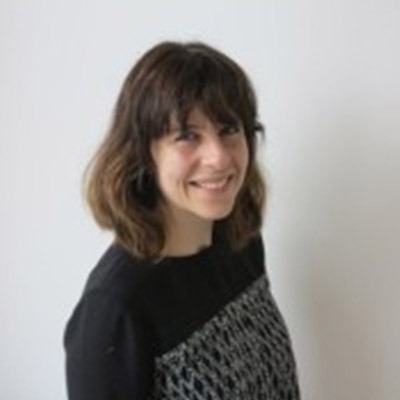
(she/her/elle)
Ariane de Palacio is the Director of Research at the International Centre for the Prevention of Crime, where she supervises content, research and strategic development. She has led several international research projects and technical assistance missions, notably with various UN agencies. She holds a Ph.D. in Geography, with a specialization in geopolitics and conflict studies. Before her arrival at ICPC, she has worked as a lecturer, researcher and research assistant on a number of issues relating to multi-scale conflicts, natural resource governance, and public participation, particularly in Latin American contexts.
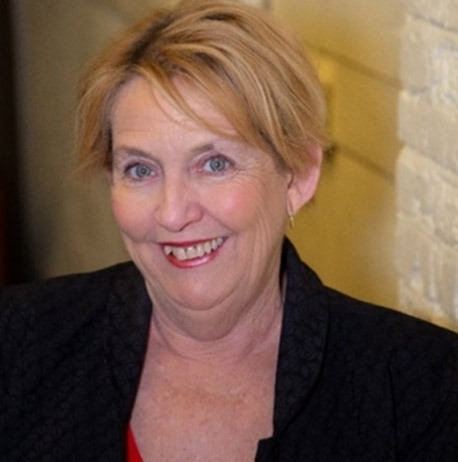
(she/her/elle)
Jan is the Executive Director for REACH Edmonton Council for Safe Communities, a not-for-profit organization created to make Edmonton a safer place to live and work where she has been privileged to lead a team of professionals dedicated to making Edmonton a safer community. REACH is a coordinating council that works closely with social agencies, businesses, and citizens to invest in our community to make our city an even safer place to live, work and play. Jan takes pride in being a part of this innovative initiative that works collaboratively with many partners to improve the lives of many vulnerable Edmontonians.
She is also a consultant with the Robcan Group, which provides training and development services to business, industry, government, and communities. She previously served as a district director with the Government of Canada managing labour relations issues and as a warden at the Edmonton Institution for Women. During her time with Corrections, Jan was fortunate to work internationally sharing expertise throughout central Europe. She is particularly proud of her work building relationships with our Aboriginal community and has received significant recognition for this by the Aboriginal community. Jan is also proud of her work to improve the lives of women working in corrections and is the founder of the organization Women in Police and Corrections.
Jan was awarded the YWCA Lois E. Hole Lifetime Achievement Award in 2013. She was the proud recipient of the first Women of Vision Award in 1999. She has also been honored to win the Association of Professional Executives Partnership Award and the Institute of Public Administrators Teamwork award.
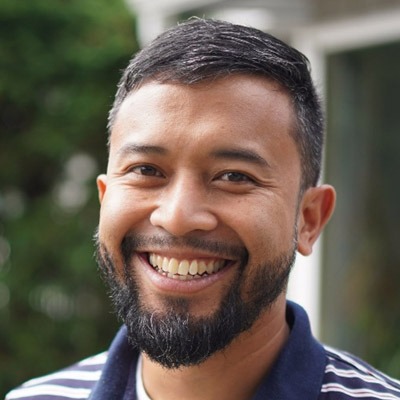
(he/him/il)
Ahmad Luqman leads the crime prevention portfolio in the City of Ottawa Community Safety and Well-Being office. He works with a broad range of community partners to bring evidence-informed approaches to community safety.
Ahmad brings years of experience working with community leaders in social housing neigbourhoods and nurturing partnerships in the social service sector. He is interested in how identity, race, and class impact people’s wellness, and reducing barriers that prevent people from thriving.
Ahmad holds two degrees from Carleton University – a Bachelor’s in journalism and a Master’s in social work. He also has specialized mediation training and a healthy dose of curiosity.
Ahmad is currently continuing his learning as a father of four, husband, son, and community member. He also volunteers regularly with the Muslim community and enjoys playing basketball and soccer.
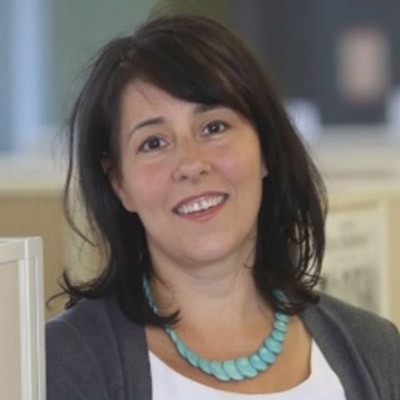
(she/her/elle)
As Public Safety Advisor for Halifax Regional Municipality, Amy leads the municipality in its journey toward holistic, collaborative approaches to community safety. She brings a human-rights lens to her work, rooted in principals of accountability, inclusion, and social and economic equity. She is passionate about championing community-led solutions to local problems and finding creative ways to harness the inherent strengths of community. With a PhD in Urban Geography, she is well skilled at synthesizing local experiential knowledge with scientific research to bring a robust evidence-base to decision-making. She is also Adjunct Professor at Saint Mary’s University, and Research Consultant for the City of Thunder Bay’s Anti-Racism and Respect Advisory.
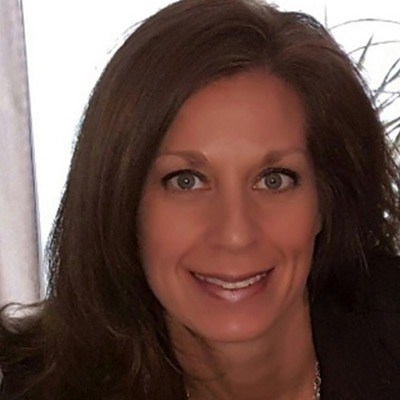
(she/her/elle)
Proudly serving on Treaty 4 land, Wendy Stone is the Crime Prevention Strategist with the Regina Police Service and is dedicated part time to The Regina intersectoral Partnership (TRiP) team. After obtaining a Bachelor of Human Justice from the University of Regina she began her career with the Province of Saskatchewan working in both Victim Services and Policy, Planning and Evaluation within the Ministry of Justice, then later became the Saskatchewan Coordinator for Justice Canada’s National Crime Prevention Centre – Community Mobilization Program. With a strong belief in community engagement, her 25-year career has focused on long-term, multi-sectoral, collaborative approaches designed to impact social issues.
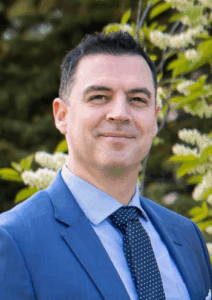
(he/him/il)
With a career spanning 30 years, Derek has led numerous transformational initiatives in public safety and well-being. Holding a Bachelor’s degree in Criminology and a Master of Arts in Criminal Justice from the University of Alberta, Derek has consistently demonstrated exceptional commitment to public safety.
His strategic leadership, coupled with the ability to engage cross-jurisdictional teams in collaborative, integrated, and innovative ways, sets him apart. Guiding teams and initiatives to enhance community safety, Derek’s strategic vision and effective leadership have been pivotal in implementing successful public safety programs and policies.
Derek’s exemplary service has been recognized and awarded by the Governor General of Canada and the Province of Alberta. Whether at the municipal, provincial, or federal level, Derek has consistently led teams to achieve exceptional public safety results. Derek is a skilled agent of organizational change, driving innovation and modernization. As a mentor and strategic thinker, he continues to shape the landscape of public safety for the better.
“Throughout my career, my primary motivation has always been the safety and well-being of the communities I serve. I believe in the power of collaboration and innovation to create safer environments for everyone. My commitment to public safety is not just a professional duty, but a personal mission to make a positive impact on society.”
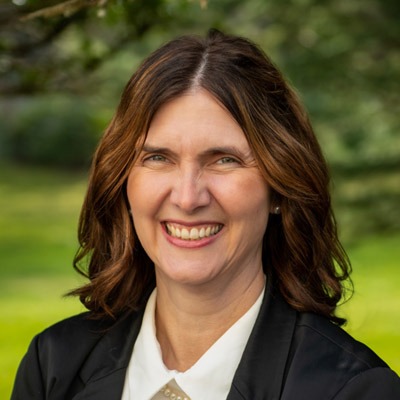
(she/her/elle)
Bree is the Vice President of Customer Experience and Community Partnerships with Civida, one of the largest affordable housing management bodies in the province of Alberta and she is also the Executive Director of the Civida Housing Foundation. Bree has been immersed in social policy and practice for nearly three decades in non-profit and public service environments at both provincial and municipal levels where she held Director and Executive Director roles in the ministries of Human Services, Seniors and Housing, Advanced Education, Children’s Services and with the municipality of Strathcona County. Bree has a degree in Political Science and a Master of Science in Human Ecology and is currently a Doctoral Candidate with Royal Roads University Doctor of Social Sciences Program. In her research, Bree is investigating the social interactions of community leaders that create conditions to improve safety and wellbeing in Canadian communities.

(she/her/elle)
Shefali Khoja has extensive experience in the areas of Diversity and Inclusion. Her passion and expertise is reflected as she focuses on building a community for all and leads the Diversity and Inclusion initiative in the municipality of Strathcona County. Over her career spanning 16 years she has led and implemented policies, projects, and key strategies in the government and civil society sectors in Canada and internationally. Shefali, has worked with Habitat for Humanity focusing on affordability and access to safe home for families who are made vulnerable across Alberta. At her government stint as a Manager of Stakeholder Engagement, she led engagements with school boards, trustees, superintendents and teachers on Alberta’s curriculum. In addition to that she worked as an organizational learning and development consultant and advised lawyers, project managers, and executive leadership. She has a bachelor’s in management studies with honours and has an MBA in Community Development (a unique MBA in Americas). In addition to volunteering as a mediator for the Strathcona County Mediation Society, she, volunteers for a National Settlement board focusing on newcomers and refugees to Canada. She currently serves as a President for PLAN (Planned Lifetime Advocacy Network) that supports individuals who face isolation, often due to disabilities.

